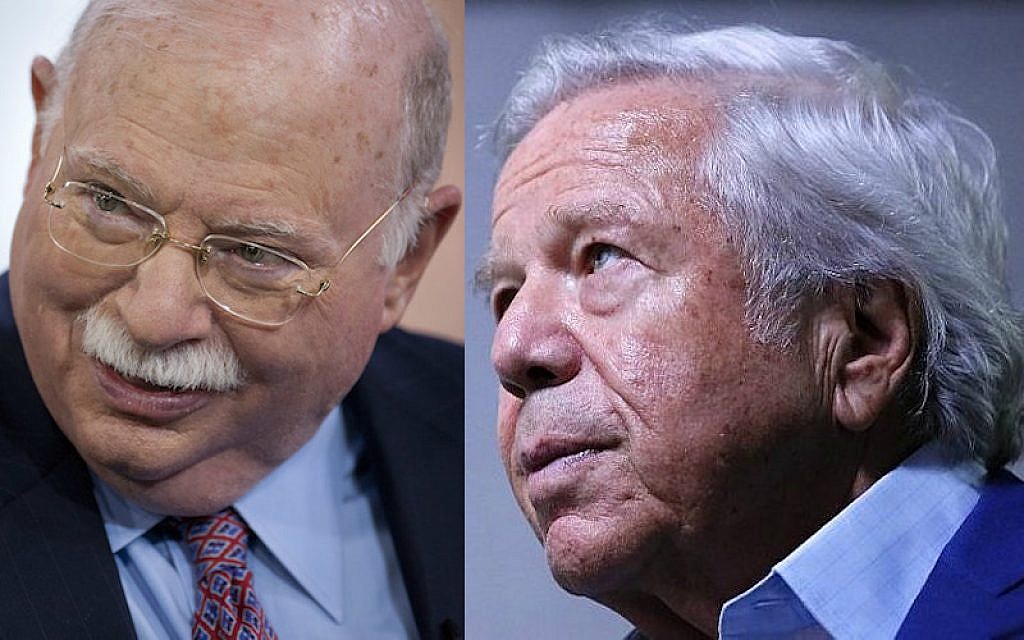After Steinhardt, now what?
OP-ED
By Jamie Allen Black, Naomi K. Eisenberger, and Nicole Nevarez

The dark and painful side of the Jewish community was exposed again recently, when everyone awoke to a New York Times report describing more episodes of gender harassment in our communal organizations.
This time, allegations were made by several professional women against Michael Steinhardt, one of the giants among our communal philanthropists and funders.
There are plenty of shards to be picked up here. But even if our community can manage to, this particular piece of china may never look the same.
For more than a year, through the B’Kavod organization, we have aimed to educate and advance change in Jewish spaces by creating cultures of safety and respect truly guided by Jewish values and functioning within their framework. What we have seen within our communal world, and heard from the brave women willing to risk so much by stepping forward, has propelled us to shake things up.
Make no mistake: an incident of gender harassment that occurs in a more obscure institution far from any center of Jewish organizational life is as repugnant, and personally and communally traumatic, as one that takes place at a high-profile agency.
But the sad reality is that when a boldface name like Steinhardt or Kraft or any other emerges, and national headlines are generated, people suddenly take notice – at least for a few more moments than they might otherwise.
Let’s at least hope so, because in our work over the past year trying to rouse the Jewish community into recognition and action, institutional forces resisting self-examination and change have too often stymied us.
Yes, in some instances, perpetrators and those silently complicit in this abuse have been exposed and separated from organizations that take seriously the Jewish values they represent. In other cases, they have not, shielded by individuals or organizations valuing philanthropic support and favor above respect and dignity.
So perhaps the best we can do with the latest developments is to leverage them into an opportunity to break through the inertia. As our tradition reminds us: if not now, then when?
In the past year, nearly 30 trainers have joined our corps, and B’Kavod has delivered Jewish-communal specific, and legally compliant trainings to more than 50 organizations throughout the United States, including federations, synagogues, educational institutions, social justice organizations, and other Jewish agencies.
In addition, we’ve created channels of communication so that those who have been subjected to gender harassment in Jewish workplaces have a trusted address to report it and receive support. And it has built a collection of relevant and timely resources, including webinars, to assist individuals and organizations to address and eradicate gender harassment in all of its forms.
Still, the engagement so far has been ad hoc. Where is the momentum, fueled by a communal sense of outrage and realization that organizations founded to reflect Jewish values have a lower bar within their walls and in their relationships with donors and others?
Victor Frankl, a Holocaust survivor and Jewish thought leader, taught us that between stimulus and response, there is a sacred pause. And living in that pause is the power of choice.
So, what do we choose as a Jewish community and as Jewish leaders dedicating our lives to the work of the modern Jewish world? The record so far seems to us to be too reactive, addressing the symptoms and not the cause. This is not to say that we should ignore the symptoms, that there should be no consequences for the individuals themselves, or that policy has no value.
It is to say that if we continue to only address the symptoms, if we remain in reaction mode rather than focus on healing change, we remain stuck.
The people who perpetuate these abuses would not have behaved differently under threat of policy violation or law. The answer is systemic change, to get back on the ground floor and build a gender reality that is rooted in equality and respect and in which everyone is allowed to be a whole, expansive individual. This is what makes B’Kavod different and Jewish, and why it is answering a higher call.
All Jewish people are united by a mandate to be a light unto the nations. That means we are responsible for exemplifying the best of humanity.
Every headline revealing gender harassment in our community has given us a moment to reckon, self-reflect and make changes.
Let’s ensure that the latest ones, in all their magnitude, have a more culture-changing effect that is deeper and more long lasting than has so far been the case. Change takes work, and it is well past time to take responsibility and make it.
—
Jamie Allen Black is CEO of Jewish Women’s Foundation of New York.
Naomi K. Eisenberger is co-founder and executive director of The Good People Fund.
Nicole Nevarez is the national director of B’Kavod.
